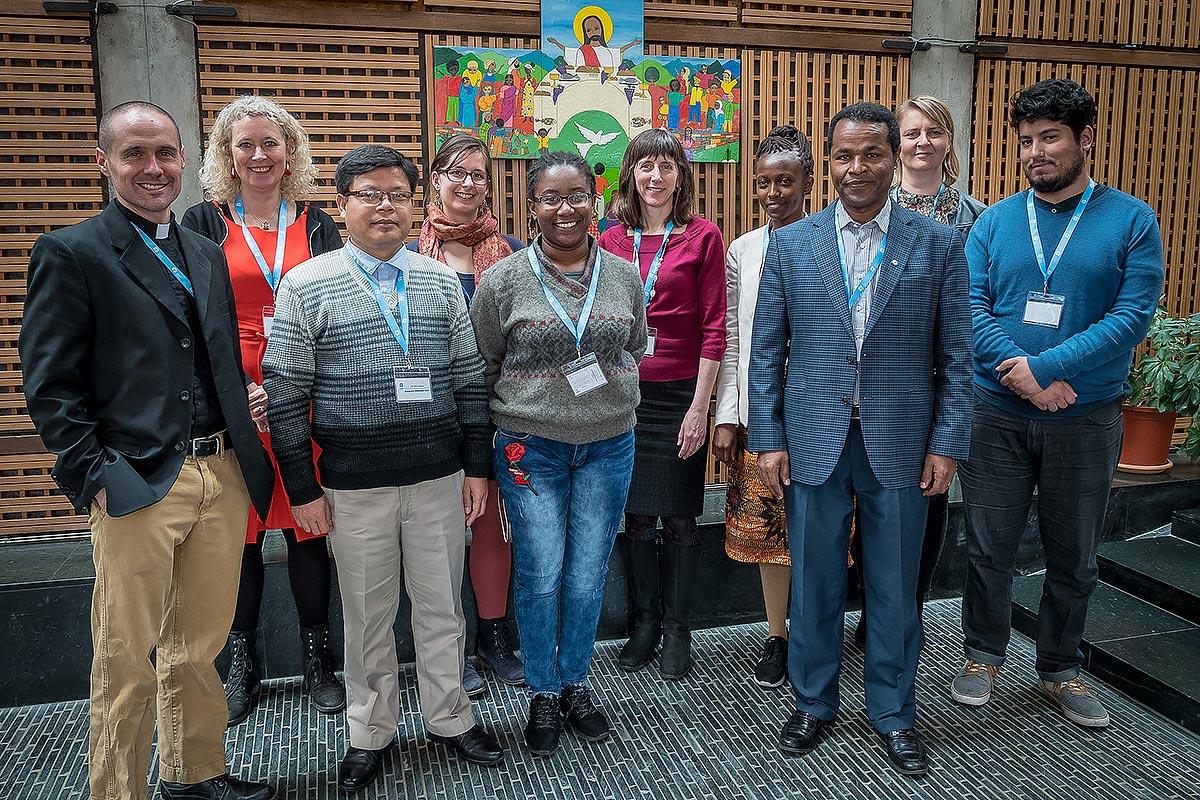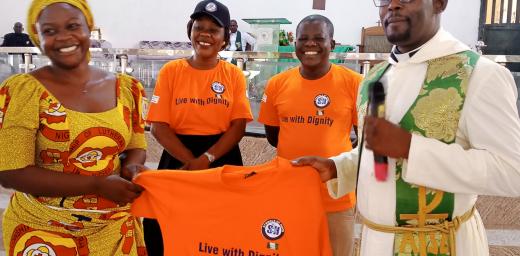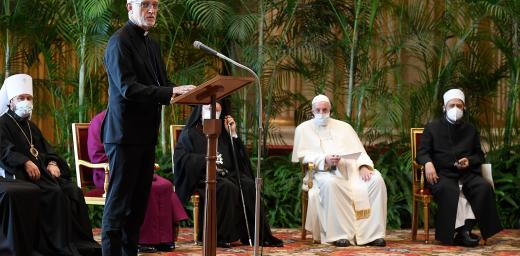Opening doors to Lutheran theological education

Members of the LWF Theological Education and Formation advisory group stand before the Lund Cross in the chapel of the Ecumenical Centre in Geneva. Photo: LWF/S. Gallay
LWF forms strategic advisory group on theological education and formation
(LWI) - The Lutheran World Federation is taking steps towards creating a network to strengthen theological education and formation across the communion.
In many parts of the world, Lutheran theological education is inaccessible. The Twelfth Assembly in Windhoek, Namibia, issued a resolution calling for the LWF to propose a strategy for creating a network of member churches, theological institutions, mission agencies and ecumenical partners aimed at improving access.
A strategic advisory group has begun examining the problem and will advise on the strategy to create the network. Made up of students and theologians from member churches and theological institutions, it will sit for two years to create the network strategy.
Education for anyone called to serve
LWF Study Secretary for Lutheran Theology and Practice, Rev. Dr Chad Rimmer, said the network would look at ways of increasing access theological education for anyone called to serve in lay or ordained ministry.
In some countries, education was too expensive or unavailable to prospective students, he said, while in others, theology institutions lacked resources or failed to attract enough students and professors. Other barriers included working in diverse languages and different systems of accreditation.
Solutions could include setting up digital platforms to share resources, student exchanges or faculty exchanges, he added.
“We have the expertise and resources out there - educators, theological institutes, member churches who know their own ministry needs. We also have many fruitful bilateral and ecumenical partnerships within the communion,” Rimmer said.
“But we need to have a global platform for creating a multilateral space where everyone can share their needs and available resources for education. This is the kind of role the LWF can play at a global level.”
Education “deeply important”
Rimmer said joint theological reflection was a pillar of the LWF. “Joint efforts in theological education are not new, but the question is how we do it today. How do we sustain theological education as a communion in ways we can’t do separately?”
Education equips and transforms, and is deeply important for our future as a communion, he said.
How do we sustain theological education as a communion in ways we can’t do separately?
Advisory group member Jubleth Aurey Mungure, a student, and member of the Evangelical Lutheran Church of Tanzania, is confident the group will come up with a strategy for a “fair and realistic” network of churches and theology institutes from around the world.
“I hope the network will bring many theologians together and enable them to share different matters concerning their field. Since unity is power and even Christ insisted on unity as in John 17, the network is going to create the possibility of attaining theological education for many people.”
Another member Dr. Mika Vähäkangas, Professor in Church and Mission Studies at Lund University, said that because Western countries lacked students of theology and the majority world lacked theological education, a perfect match should exist. However, views on what theology is and what academic excellence and theological formation are diverge considerably, he said. The advisory group and the network could address this issue and try to find ways of meeting the needs of the both.





